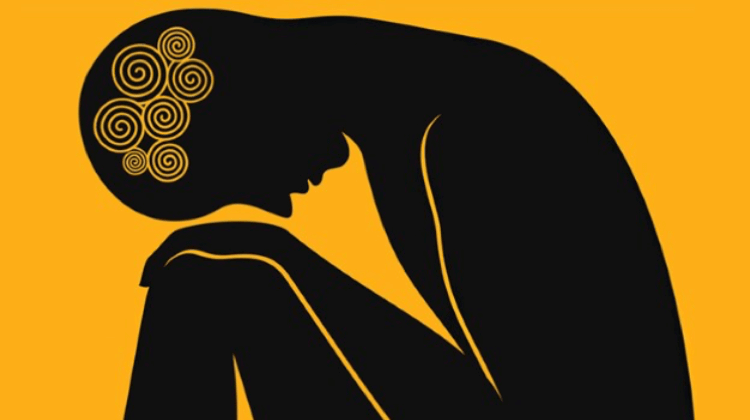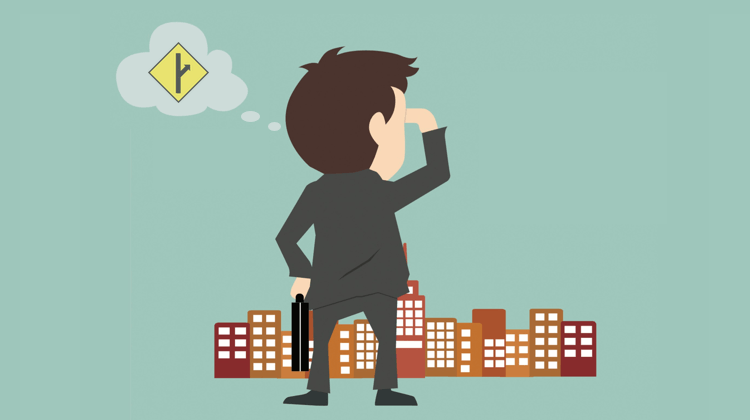How To Cope With A Disability And Start To Thrive

Imagine having a life filled with friends, family, work, vacations and then out of nowhere you get into an accident or hit with a disease that leaves you disabled. What do you do when your life’s been turned upside down so suddenly? It’s hard to move on when you don’t know how to cope with a disability.
Perhaps I’m describing your situation and now you’re wondering how to deal with a new reality so unfamiliar to you. Understand from the outset that coping with change is a skill — it can be learned but it takes practice and perseverance until you start to feel a difference. The nine suggestions outlined below are some ways to help build your coping muscle but only when you work at it!
So, let’s get underway…
LEARN TO PRACTICE GRATITUDE
If you’re like most people who suddenly become disabled, you enter into what’s known as the five stages of grief (denial, anger, bargaining, depression and acceptance) which can last for many months depending on the severity of your disability and temperament.
At a certain point though, it’s up to you to decide whether to continue dwelling on your former life or start living the best you can given your limitations. YOU have the choice where to direct your energy!
For starters, think about all the things you still CAN do and concentrate on those and NEVER compare yourself to others because it’s a losing battle.
Can you still experience the sensation of wiggling your toes in the sand?Can you still experience the beauty of a flaming sunset?Can you still experience the magical power of music?
Not everyone can experience these delights and it’s easy to lose sight of this.
In Judaism, there’s a blessing known as Asher Yatzar in which you thank God every day for your healthy orifices that allow you to do your business in the bathroom. How’s that for finding things to be thankful about?!
When you start to practice gratitude, your whole outlook on life starts to shift. Butit takes regular practice.
OPTIMIZE YOUR MIND AND BODY
Being disabled doesn’t give you license to give up on your mind and body. There are ALWAYS ways to increase your quality of life, sometimes even resulting in complete recoveries!
Eat a Well-Balanced Diet
I’m not an advocate for any particular diet (Paleo diet, macrobiotic diet, vegan diet, etc.) and instead advise you to consult a nutritionist to create a diet specifically tailored to you. One thing’s for sure though, no one’s ever said eating more junk food is a good idea!
Get Enough Sleep
The health benefits of sleep are widely known but did you know that lack of sleep increases stress levels which directly affects your coping skills? [source]
Exercise Regularly
Any physical exercise that gets your body moving and releases endorphins improve your coping skills. Given your disability, try to find an exercise that works for you like Yoga, swimming, brisk walks, or even neck stretches. [source]
Create a Healthy Mind
It’s been said that a disability is as much in the mind as in the body. If you’re not in the right frame of mind, you’ll have a harder time healing physically.
Meditation
As human beings, we’re constantly deluged with endless chatter in our heads, oftentimes negative and destructive. Meditation helps break free of these incessant thoughts by directing our attention to the present moment for long stretches of time.
I meditate at least 30 minutes per day and found that it’s helped me feel calmer, more focused and less anxiety-stricken.
Visualization
Your body can’t tell the difference between what’s real and what’s imagined. Quick! Close your eyes and picture yourself riding a roller coaster taking a steep plunge. Did you feel a slight pit in your stomach? Just thinking about the activity has a physiological effect on your body!
So, visualization gets you to focus on a sequence of events experiencing something you’d LIKE to happen, for example seeing your white blood cells kill off disease-causing bacteria. The greater the visual detail, the more effective the practice.
Hypnosis
When you enter a trance-like state, you become more susceptible to suggestions which your otherwise conscious mind wouldn’t normally adopt. Hypnosis works for many people when all else has failed, including learning to deal better with chronic pain.
Any of these mind exercises can help strengthen your coping skills but they take a lot of regular practice until they start to pay off (see a trend here?) Check out Michael Sealey’s videos on YouTube for lots of guided meditation, visualization and hypnosis sessions. [source]
FIND ALLOPATHIC AND/OR NATUROPATHIC TREATMENTS THAT HELP YOU
Seems obvious, right? Well, the truth is many disabled people simply take their doctor’s advice without ever exploring the full breadth of treatment possibilities. There’s ALWAYS something out there to try! I’ve been suffering from chronic Lyme Disease for eight years and even now I still come across treatments I’ve never heard about before.
Now, everyone responds differently to treatments so it can take a long time until you find something that works for you but don’t ever give up! Just make sure to track your progress with a journal or online blog otherwise you’ll never know what’s helping and what’s not.
At the very least, treat yourself to regular massages or baths since they provide temporary relief for just about everyone.
MAKE ADJUSTMENTS TO YOUR HOME LIFE
Human beings by nature find change difficult and there’s no bigger change than suddenly becoming disabled. That’s why one of your main priorities should be making your home-life as easy as possible while coping with a disability.
Get Outside Help
First, create a roster of friends and neighbors to call up whenever you need help with chores like picking up groceries and dropping off packages at the post office.
Second, find caregivers, nurses, and occupational therapists to assist you with daily living if you’re unable to do most tasks yourself. Many of these services are already covered if you qualify for Medicare.
Buy Assistive Equipment/Devices
Depending on your disability, you may need special equipment or devices to accommodate you such as bath lifts, stair lifts, mobility scooters, wheelchairs and special door openers.
FIND PEOPLE TO TALK TO REGULARLY
Family and friends are irreplaceable as they often provide the understanding and emotional support needed to manage a disability. But while well-intentioned, they can never know the full extent of your hardship and that’s why it’s important to connect with people in a similar situation as you. Local support groups, coaches, relevant online forums, and social media are all worth checking out to meet new people.
KEEP YOURSELF BUSY
If you’ve never had a hobby, now’s the perfect time to take one up. Or perhaps there’s something you’ve always wanted to do but never had time for in the past like writing a novel. The point is, your coping skills will improve when you start to feel productive again.
Another option is to start volunteering on a regular basis. When you donate your time to helping others out, you begin to feel more relaxed and fulfilled.
LEARN TO STOP WORRYING
Even when you come to grips with your disability, it’s easy to get wrapped up with anxiety wondering what will happen to you in the future. Thoughts about getting worse, losing your family or running out of money come to mind as typical examples.
All that worrying is wasted energy which negatively impacts your health. As mentioned before, your body can’t tell the difference between what’s real and imagined and so when you constantly reinforce worst-case scenarios in your head, your body pays the price!
So here’s what to do…
Whenever you start to feel anxious, introduce doubt into whatever it is you’re worrying about by asking yourself these series of questions:
“Are you absolutely SURE about that?””Couldn’t it turn out ANOTHER way, one where things work out okay?””What would that other way look like?”
Practice these questions whenever you have a worrying thought and you’ll disarm your anxiety quickly and efficiently.
EASE YOUR FINANCIAL BURDEN
Perhaps you’ve already run out of money and it’s no longer a worrying matter, it’s now a stark reality. Most people with disabilities struggle financially as there are no longer able to earn a living. No doubt, the stress of the situation can really test your coping skills.
If you’re in a position to work from home a couple of hours per day to help pay your bills, make every effort to do so. Easing your financial worries can go a long way to making your disability more manageable.
Whatever you do, don’t apply for payday loans as you’ll dig yourself into an even deeper hole!
TREAT YOURSELF WELL
Whenever completing a task you set out to do like washing the dishes, congratulate yourself on a job well done. Only you know the strength and willpower it takes to overcome ordinary challenges and it shouldn’t go unnoticed, much less by you.
You may gradually be able to take on more tasks as time goes on and that’s why it’s especially important to track your progress with a journal or health blog to see how far you’ve come.
Put these suggestions into practice and move from coping with your disability to thriving with it!
NOW IT’S YOUR TURN!
What aspect of your disability do YOU have the most trouble coping with? Leave your comments below!








